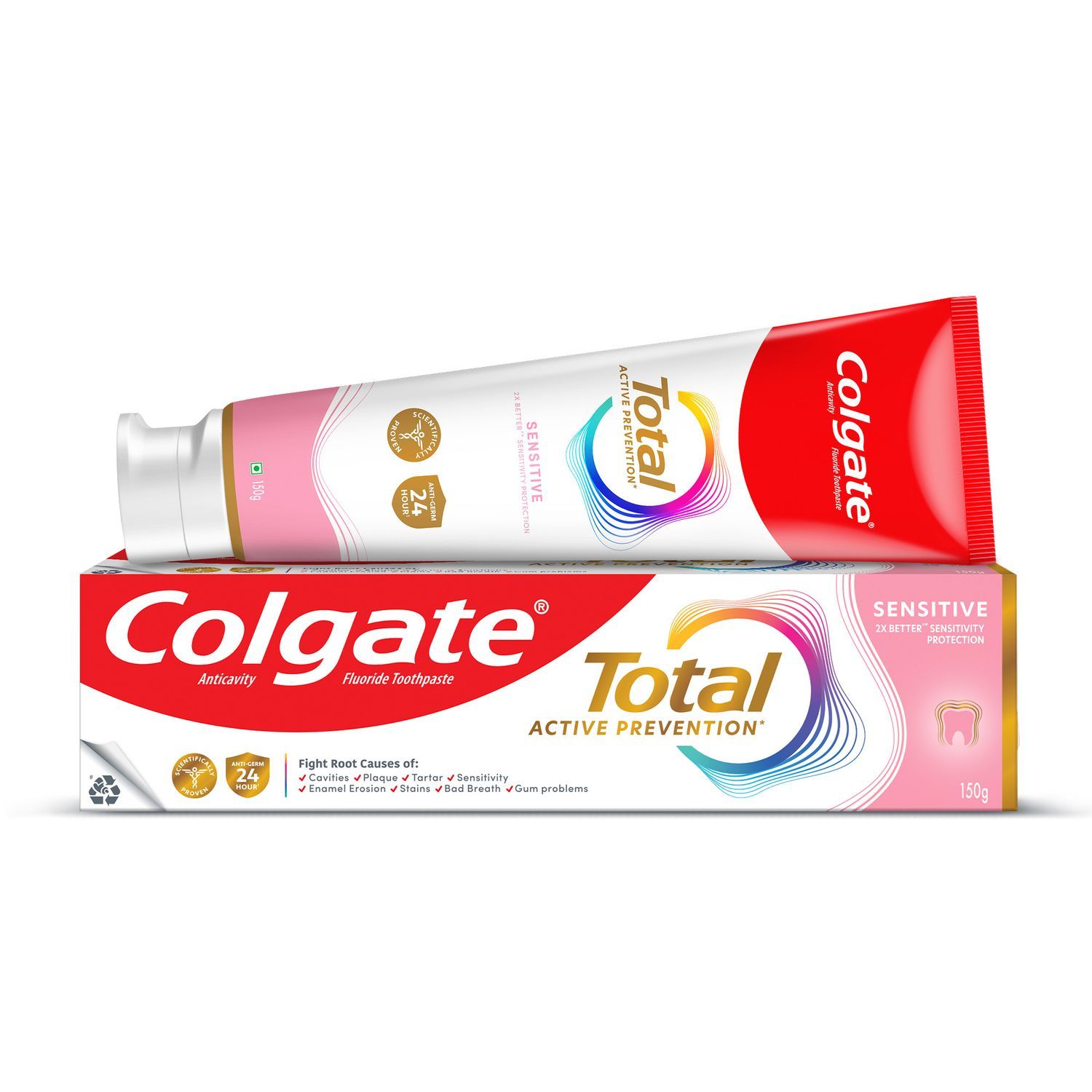-
-

TEETH WHITENING
What Is Stannous Fluoride Toothpaste?Stannous fluoride toothpaste helps prevent cavities, reduce sensitivity, fight plaque, and support daily gum and enamel health.

Selecting Dental Products
Best Toothpaste in India: Five Dentist-Recommended TypesToothpastes today are formulated to meet your every dental need and come in many flavours. Have your dental professional suggest the best toothpaste in India.
-
Science & Innovation
- ORAL HEALTH CHECK
- PRODUCT MATCH
- Colgate® | Toothpaste, Toothbrushes & Oral Care Resources
- Oral Health
- Wisdom Teeth
- You've Your Wisdom Tooth Removed


Well, you’re now a few grams lighter than you used to be: your wisdom teeth were removed. But some questions might remain. Wondering how long you’ll be recovering for? Or when you’ll be back to chewing crunchy carrots and apples with ease? Read on to find out.
Getting your teeth pulled
The wisdom teeth, also known as the third molars, are the final set of molars to erupt. Not everyone keeps these teeth, nor are they necessary for having a healthy, beautiful smile. In fact, they can cause harm if they do not come in properly.
When these molars come in, usually between the ages of 16 and 20, there may not be enough room left for them to erupt. They can emerge at an angle, and may crowd the mouth or sometimes they don't fully emerge. As you can imagine, this can lead to future oral health problems like infections and pain.
The American Dental Association recommends that people have their mouth checked before the age of 20 to see how the wisdom teeth are developing. If necessary, your dentist or an oral surgeon can remove the final molars in a single outpatient procedure.
Scary? It doesn’t have to be. There are simple ways to take care of yourself – just because you had your wisdom teeth pulled doesn’t mean you can’t handle it wisely.
Post-surgery steps
After getting your wisdom teeth pulled, you are likely to experience pain and swelling. There may be some bleeding. While your mouth heals, you have to be careful not to dislodge the blood clot, or harm your healing gums.
Typical wisdom teeth recovery time is three to four days, although it can be as long as one week. The length of recovery depends a lot on how badly the wisdom teeth were impacted, and how they were erupting.
Plan on taking it easy for a few days; you can resume your normal activities after the first day in most cases, but for about a week you don't want to do anything that could dislodge the blood clot from where your teeth were removed.
Stay cool to keep pain at bay
- Take a prescription pain killer recommended by your oral surgeon, or purchase an over-the-counter option
- Place an ice pack over the jaw – this reduces swelling and discomfort
- Avoid brushing, spitting, flossing and rinsing for 24 hours
- Rinse frequently with salt water to keep your mouth clean
- Stock up on apple sauce, yogurt, and cottage cheese. You want to eat a soft-food diet for the first day or more, and then slowly move to semi-soft foods when you’re ready.
Original content by Brenna Stone
This article is intended to promote understanding of and knowledge about general oral health topics. It is not intended to be a substitute for professional advice, diagnosis or treatment. Always seek the advice of your dentist or other qualified healthcare provider with any questions you may have regarding a medical condition or treatment.
ORAL HEALTH QUIZ
What's behind your smile?
Take our Oral Health assessment to get the most from your oral care routine
2.3 billion
people worldwide suffer from tooth decay
ORAL HEALTH QUIZ
What's behind your smile?
Take our Oral Health assessment to get the most from your oral care routine
2.3 billion
people worldwide suffer from tooth decay
Related Articles

Dental emergencies and sports safety
Instant Relief from Tooth Pain: Essential TipsDiscover straightforward remedies on how to relief from tooth pain. Learn essential techniques to alleviate tooth pain and restore comfort effortlessly.

Adult Oral Care
Dental Health Care: What Is It & What Does It Mean to You?What exactly is dental health care, and what does it mean to you? Visit Colgate now and learn the main aspect of dental health care and why it's important.

Adult Oral Care
Coated Tongue: Symptoms, Causes, and TreatmentA coated tongue may be harmless. Learn what may be the cause and when you should see your dentist for an evaluation, here.
Related Products

Helping dental professionals
More professionals across the world trust Colgate. Find resources, products, and information to give your patients a healthier future







